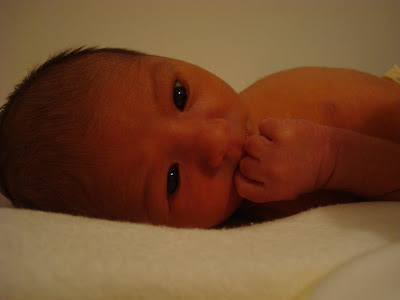Konbanwa!
OK so fefechan asked me to write about my lesson again, i hope you find it helpful.
So, i had to write another paragraph in japanese for Wednesday's class, i wrote about my day, what i do when i get home. It was pretty lame but i can't write any complex sentences so thats what i wrote.
My first mistake was using "ni" after my workplace. I wrote "XXX ni hattaraiteimasu" when it should have been "XXX de hattaraiteimasu". I got this wrong coz i was in a hurry writing, but i know the rule anyways.
The second was writing "uchi ni wa", i wanted to say that "at home...", it should have been "uchi de wa".
My third was "intaanetto wo saafu shite" which i actually got from online, but yoriko-sensei said it should be "intaanetto saafu wo shite".
My fourth was when i tried to say "when my dad gets home", i wont tell you what i wrote lol but it should have been "otousan ga kaetara..". So i guess the rule is to use informal past + ra to say "when (the verb) happens", "when i eat", "when she goes"..etc
My fifth (wow lots of mistakes) was using "ni" after gurai. You don't need anything after gurai.
Another sentence i couldnt formulate was "we discussed many things/topics". Yoriko-sensei said "iroiro no hanashi wo shimasu" is OK.
I also wanted to say "most of the time" but didnt know how so i just used itsumo (always), to make it almost always or most of the time, you can add "hotondo" before itsumo. So like, "kono resutoran de hotondo itsumo sushi wo tabemasu".
After correcting my paragraph i had my test, which included saying english sentences in japanese, which was mainly for counters and wasnt hard. Heres a couple for you fefechan, you better answer it ;) How do you say "i drank 2 cups of tea yesterday" and " its now 10 to 7 pm" and "its 9:20:35 (9 oclock:20 mins: 35 seconds) now".
Then there was an excercise about the differnce between soshite/sorekara and gurai/goro. Then a question about particles. Heres another one for you fefechan,
Oosaka eki ( ) basu ( )notte kyouto ( ) basu ( ) orite kudasai. (put the particles in the parentheses)
Then it was translation. Then she taught me about yo and ne which i thought i knew, but what was new was, if the speaker is telling someone new information that the listner does not know about then you can use "yo". For example, your asking me about the food at a resturant you havent gone to yet, i say "oishii desu yo". "ne" as you already know is used for agreement when both speaker and listener know about the topic, so if you ask me about the food in a resturant we have both been to, "oishii desu ne" is used instead of "yo" as you are already familiar with the food there. Apparently "yo" kinda makes the sentence less direct, i thought it made it stronger but Yoriko-sensei said if you just say "oishii desu" its OK but sounds a bit direct like your answer is definitely right kinda thing, if you get what i mean.
Then we studied about changing i-adjectives and na-adjectives when a verb comes after. For example, when a NOUN comes after an i-adjective, it doesnt change. "kore wa oishii tabemono desu". But when a VERB comes after it, you take the i and add ku ( i kinda knew that but not too good), so like, "ano ko wa okiku narimashita". With na-adjectives, the na becomes ni, for example, "shizuka ni benkyou shimashou" or " kirei ni souji shite kudasai".
Then i learnt some Kanji, the days of the week (without the youbi part coz its complicated kanji) and the word month, and year, and hour and minute.
Here they are in typing first;
月(gatsu/month, tsuki/moon)
日(nichi/day, hi(bi))
火(as in tsuesday, hi (fire)
水(sui as in wednesday, mizu/water)
金(kin/gold/fri(day),kane/money)
土(dou as in saturday, tsuchi/mud)
木(moku as in thursday, ki/tree)
時(ji as in the hour (4-ji) or toki)
寺(tera/shrine, part of "ji")
分(fun/minutes)
年(nen/year)
Its pretty easy to mess up the kanji just by writing it in the wrong order so Yoriko-sensei insisted that i did every stroke in the right order.
I think thats it for Wednesday's lesson. Next week im learning more grammar and kanji, and i have an exam and homework again. I was really disappointed in myself in reading/speaking, at home im sure i pronounce everything right but when im nervous in class i seem to have such bad pronunciation.. i gotta try to calm down a bit so i dont mess up.. Ok then, ja mata!
PS marie-san, if you notice anything wrong please let me know.

 These are the highest heels i have EVER bought! I hope i don't fall flat on my face when i wear them ('^_^) eeh
These are the highest heels i have EVER bought! I hope i don't fall flat on my face when i wear them ('^_^) eeh
 These are the highest heels i have EVER bought! I hope i don't fall flat on my face when i wear them ('^_^) eeh
These are the highest heels i have EVER bought! I hope i don't fall flat on my face when i wear them ('^_^) eeh




